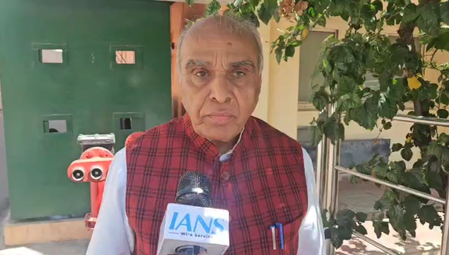
Dhaka, July 14 (IANS) With the dengue outbreak worsening in Bangladesh, experts have raised alarm over a potential nationwide crisis, and stressed that efforts to control the mosquito-borne disease have been inadequate under the Muhammad Yunus-led interim government.
They warned that without urgent, targeted action, the crisis could escalate across all 64 districts in the country, local media reported on Monday.
According to the Directorate General of Health Services (DGHS) of Bangladesh, another person died from dengue in 24 hours till Sunday morning, raising the number of fatalities from the mosquito-borne disease in the South Asian country to 56 in 2025.
Additionally, 420 more patients were hospitalised with viral fever, raising the number of confirmed cases to 14,880 this year.
The new cases reported in the country include 116 in Barishal Division, 79 in Chattogram Division (outside city corporations), 60 in Dhaka Division (outside city corporations), 57 cases detected in Dhaka South City Corporation, and 25 in Dhaka North City Corporation.
Entomologist Kabirul Bashar called on the interim government to prioritise killing mosquito larvae and eliminating breeding sources, rather than relying on widespread fogging.
“Fogging should be limited to hotspots with confirmed cases. General fogging is largely ineffective, yet it remains the main method being used,” the leading Bangladeshi newspaper, The Daily Star, quoted Bashar as saying.
“Without community-level efforts to eliminate breeding grounds at the household level, dengue will remain difficult to control,” he further said, emphasising the significance of raising public awareness and community participation.
Bashar also warned that all districts now face the risk of more severe outbreaks compared to previous years, stating that the Aedes mosquitoes, the primary vector for dengue, are now present in every district.
Entomologist GM Saifur Rahman also backed Bashar’s concerns and urged for the formation of a specialised vector control department to tackle the rising mosquito-borne diseases in a scientific and structured way.
“This department should oversee cluster identification, surveillance, and targeted interventions. Without a structured and science-based approach, existing efforts will continue to fall short,” Rahman warned.
Public health specialists, physicians, and entomologists have unanimously pointed to the absence of sustained and effective preventive measures.
They have also flagged the country’s overburdened medical system as being inadequately prepared to deal with the escalating crisis.
With no significant overhaul of the healthcare framework and the absence of a robust dengue management plan, both urban and rural populations remain vulnerable.
–IANS
int/scor/sd/






